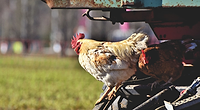Alternatives to Antibiotics in Aquaculture Exist and Need Investment, Say Researchers

Credit: Dan Gold via Unsplash
There are viable alternatives to antimicrobial use in aquaculture that need proper investment, according to recent research supported by the Food and Agriculture Organization of The United Nations (FAO) and the Norwegian Agency for Development Cooperation (Norad). The paper also emphasizes the importance of approaching the issue of antimicrobial resistance (AMR) from a “One Health” perspective.
Alternatives to antimicrobial use for mitigating the spread of disease among farmed fish include vaccination, phage therapy, gene-editing, pro- and prebiotics, and enhanced biosecurity measures. According to the authors, research shows the promise of vaccination as a proactive solution to preventing disease.
Additionally, the use of specific pathogen-free (SPF) stock was underlined as an essential part of a biosecurity strategy. SPF stock refer to animals coming from a population that have 1) tested negative for specific pathogens for at least two consecutive years; 2) been raised in high biosecurity facilities under stringent biosecurity measures; 3) been fed with biosecure feeds; and 4) have a surveillance program in place.
In addition to investing in and making use of alternatives to antimicrobial use in aquaculture, the authors state that research should be done on the health of aquatic organisms, with an emphasis on disease prevention. The authors also advocate for the regulation and supervised use of veterinary antibiotics.
Looking for a reprint of this article?
From high-res PDFs to custom plaques, order your copy today!






